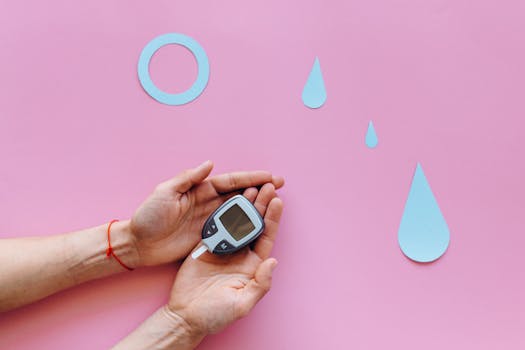
Understanding Diabetes: Types, Symptoms, and Management
Takeaways: Diabetes is a chronic condition that affects millions worldwide. Understanding the different types of diabetes, recognizing the symptoms, and knowing how to manage the condition effectively is crucial for maintaining a healthy life. This article delves into the intricacies of diabetes, offering insights into its types, symptoms, and management strategies.
What is Diabetes?

Types of Diabetes

Type 1 Diabetes
Type 1 diabetes is an autoimmune condition where the immune system attacks and destroys the insulin-producing beta cells in the pancreas. This type of diabetes typically develops in children and young adults, though it can occur at any age. Individuals with Type 1 diabetes must take insulin injections or use an insulin pump to manage their blood sugar levels.
Type 2 Diabetes
Type 2 diabetes is the most common form of diabetes, accounting for about 90-95% of all diagnosed cases. It typically occurs when the body becomes resistant to insulin or when the pancreas fails to produce sufficient insulin. Type 2 diabetes is often associated with obesity, physical inactivity, and poor dietary choices. Management may include lifestyle changes, oral medications, and sometimes insulin therapy.
Gestational Diabetes
Gestational diabetes occurs during pregnancy when the body cannot produce enough insulin to meet the increased needs of both the mother and the developing fetus. While this condition usually resolves after childbirth, women who have gestational diabetes are at higher risk of developing Type 2 diabetes later in life.
Symptoms of Diabetes

- Increased thirst
- Frequent urination
- Extreme hunger
- Unexplained weight loss
- Fatigue
- Blurred vision
- Slow-healing sores or frequent infections
It is important to note that some individuals, especially with Type 2 diabetes, may not experience noticeable symptoms until the disease has progressed. Regular screening and blood tests can help detect diabetes early.
Management of Diabetes

1. Healthy Eating
A balanced diet plays a vital role in diabetes management. Individuals should focus on whole foods, including vegetables, fruits, whole grains, lean proteins, and healthy fats. Monitoring carbohydrate intake is also important, as carbohydrates directly affect blood sugar levels.
2. Regular Physical Activity
Exercise helps improve insulin sensitivity and can aid in weight management. Aim for at least 150 minutes of moderate-intensity aerobic exercise each week, along with strength training exercises at least twice a week.
3. Blood Sugar Monitoring
Regular monitoring of blood sugar levels is crucial for managing diabetes effectively. Individuals should work with their healthcare provider to determine how often to check their blood sugar and what their target levels should be.
4. Medication Management
For many individuals with diabetes, medication is necessary to manage blood sugar levels. This may include insulin injections or oral medications that help the body use insulin more effectively.
5. Education and Support
Education about diabetes and its management is vital. Joining diabetes support groups or working with a diabetes educator can provide valuable resources and encouragement.
Conclusion




